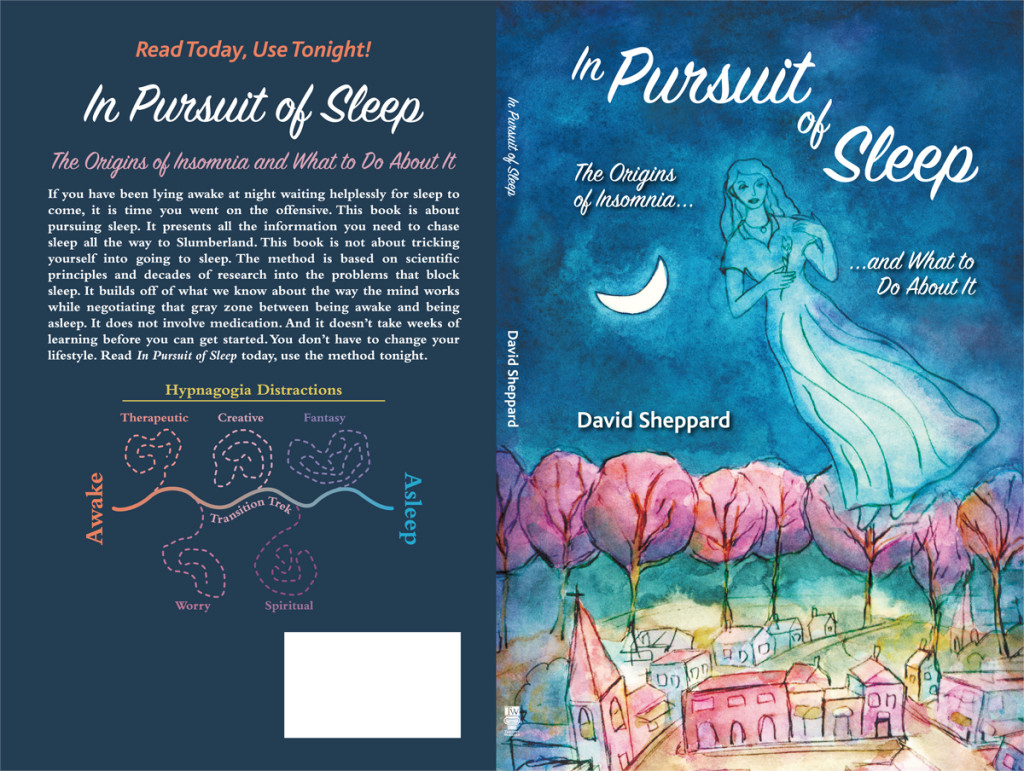Here’s a perfect description of the modern insomnia problem: Maybe I Don’t Need Sleep. Lisa Katz says:
I cope with broken sleep. I have truly overwhelming exhaustion by three in the afternoon and the compulsive desire to be in my pajamas by 6PM… or really maybe 4PM.
I have been there. So have many of us. Lisa goes on to say:
I have tried a plethora of methods to help “clear my thoughts” in the middle of the night. There is a pen and notepad nestled by my bedside. There are Post-It Notes waiting to be peeled away from their cube should a thought pop into my head. Of course all of this is done in complete darkness. Light is the enemy if you think there is even a remote possibility of falling back asleep.
This is so familiar and so sad. I have a way through all this, one that will get you to sleep reliably every night, every time you wake, so that even though you may have a bad day, it won’t be because you didn’t get enough sleep.
Help is coming soon. In Pursuit of Sleep will be published in early January 2016.

